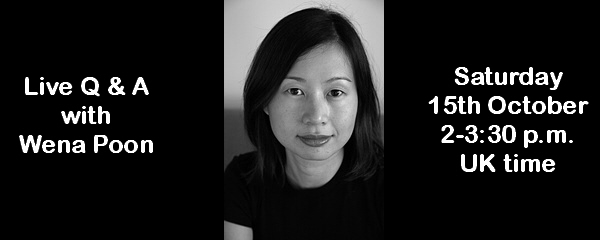
*
WENA POON is a Singapore-born American writer, performer and photographer. Her first short story collection, Lions In Winter (2007), was nominated for both the Frank O’Connor Award in Ireland and the Singapore Literature Prize. Her second collection, The Proper Care of Foxes (2009), was nominated for the same prizes.
Her novel, Alex y Robert (2010), about a female American bullfighter in Spain, was the BBC Radio 4 Book at Bedtime in September 2010. An operetta based on the book was translated into French, nominated for le Prix Hemingway, and performed at the Roman bullring of Nîmes in June 2011.
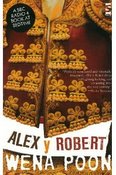 This month, her latest work, The Wood Orchid, is being staged in London alongside works by Sir Tim Rice, Wole Soyinka, and UK Poets Laureate Sir Andrew Motion and Carol Ann Duffy, as part of the 66 Books cycle. Further details are available HERE.
This month, her latest work, The Wood Orchid, is being staged in London alongside works by Sir Tim Rice, Wole Soyinka, and UK Poets Laureate Sir Andrew Motion and Carol Ann Duffy, as part of the 66 Books cycle. Further details are available HERE.
Wena is a writing fellow of Avocats du Diable in France, Hawthornden Castle in Scotland, and the International Writers Workshop in Hong Kong. She photographs and designs some of her own books and works in English, French, Mandarin and other Chinese languages. She is a graduate of Harvard College and Harvard Law School, and works as a lawyer. She is based in New York and Austin.
*
READ Wena’s story ‘Maxine, Aoki, Beto and Me‘.
*
Loree Westron: Good afternoon Wena. Or rather, good morning. It’s lovely that you can join us, here, from New York.
You’ve published two collections of short stories. Perhaps I can start things off by asking a general question about your writing process. About the way you write, or about the steps you go through in the creation of a story?
Wena Poon: Wow! It’s 9 in the morning and I get such a big, heavy question! Well I can tell you first off the bat that when I write I blare music very, very loudly. Like now. I’m blasting Lily Allen, who is a very naughty 20-something. She has her own tv show, Lily Allen & Friends, in the UK. I usually listen to precocious girls like Lily Allen, or Marina & the Diamonds. If I’m not I switch over to classical opera, my other default music when writing. Or I listen to Radio Espana or Radio France.
LW: Many of your characters are struggling to find — or struggling to keep — their identity, away from the place of their birth. There seems to be a real energy here, for you, something that fascinates you and fires you up. Can you say something about that?
WP: When I wrote my first book Lions In Winter I was in my twenties and feeling rather sorry for myself as an immigrant in America, having left Singapore at age 17 to go to an American university by myself. I’d never left my family before or anything, so that book captures that early pain and I think it’s still popular among young people who are feeling dislocated. In my thirties I began noticing that this sense of dislocation, this pain, is evident in all diasporic communities, so I began studying the diaspora, not just of Singaporeans, or Chinese, but of Spanish, Indians, Jewish people.
LW: As an American living in the UK, I can really relate to Alistair’s grappling with accents in the story ‘Addiction’. He wants to fit in to life in the UK and not always be seen as being different, but at the same time he’s afraid of alienating himself from his family in Singapore. He wants to be true to himself, but feels the burden of family expectations pulling him back. Still, there’s a sense that being in a foreign land is liberating and it’s this that allows him to find his own way in life. That’s a powerful message, and also one that is quite sad in a way.
And again, ‘The Man Who Was Afraid of ATM’s’ — about the elderly Singaporean man living with his son’s family in Ontario — is also very moving. Even though he’s proud of his son and the material wealth he’s achieved, he sees his granddaughter growing up, embracing the western culture and uninterested in her own roots. All very poignant.
WP: It’s wonderful that you are able to relate quite naturally to the Lions In Winterstories that way! I had an American book club for that book, they invited me over and we talked for something like FOUR hours. It was a bunch of white American women, but they were Jewish American, or Italian American, and everybody had similar stories to tell. They kept asking, why isn’t Lions In Winter published in America? (It’s in UK and Singapore, Malaysia). They couldn’t believe that American publishers think it won’t sell. But you know how it is with the big publishers — I don’t fit the mold. Funnily enough, people like me and you, “we are the 99%”. When you think about the American readership, they’re not a monolithic bunch, they’re actually very racially and culturally diverse. Their needs aren’t being catered to, so that’s why they’d rather hang out on Facebook than buy a book at Barnes & Noble.
Sarah Hegarty: Hello Wena, I wondered if I could ask you about finding inspiration! How does a story start, for you — with an image, or a sentence, or an idea?
WP: Hi Sarah! Unlike Virginia Woolf in The Hours, I almost never begin with, “I think I have a first sentence.” I think that happened only once. As I get older I think more in ideas and images rather than words. Usually it’s an idea, something I want to say. I usually begin writing when I notice a fundamental injustice in the world. It may not necessarily be social injustice (although sometimes it is). It might be an aesthetic injustice, or a gap in media coverage, something that is crying out for attention and indignation. That’s what sets me off. Although I write fiction, every short story and novel is an attempt to remedy fundamental gaps in our reality, to acknowledge people who have never been represented, to correct media shortsightedness. As a result, I have never had writer’s block. Never. I don’t understand writer’s block. I have the opposite. What would you call it — writer’s gush?
Juliet West: Hi Wena, I really enjoyed your short story ‘Maxine, Aoki, Beto and Me’, particularly your use of dialogue. Do you read your stories aloud while you are drafting them?
WP: Hi Juliet! Thanks for reading that story. Yes sometimes I do. I talk about this in this brief article, Making Paper Shadows, where I describe filming my stories, and acting out the scenes as well, just to get the dialogue and the timing right. I shoot the stories usually (I’m a photographer). The goal is to make the story come alive for the reader, so that by the time you finish a story, you feel as if you’ve just watched the movie.
LW: I’m also interested in your characters. Your protagonists are all very different. Can you tell us something about how you develop a character – particularly those least like yourself – something about the process you go through to access these diverse points of view?
WP: In celebration of this being a British-based session, I thought it was very important to announce that it is 9.38 AM in New York City, and I am having tea with Marmite toast.
LW: Marmite…you either love it or you hate it, right?
WP: Sorry, I meant “UK-based”. I’m not very coherent for a “writer” as I’m blasting Lily Allen and making Marmite toast at the same time, and my tea has grown cold. I must make more hot tea.
Marmite is a story in itself. It has united me with Indian writer friends, who — like me — grew up on a diet of Enid Blyton and Marmite toast. It’s the “ex-colony” thing. It’s really funny because I’ve lived in America for 20 years and everyone thinks I’m Asian American and then I talk about Enid Blyton and they stare at me like I’m crazy. I talk about some of these themes in my second book The Proper Care of Foxes — about the hidden ties between the UK and the rest of the world. In “Max & the Biscuit”, a Hong Kong linguist celebrates British biscuit names.
About how I create characters? It’s very easy if you think of it as acting. I am a very poor actor, which is why I didn’t go into theater, but I’ve always been interested in theater and film, and if I could remember lines I would have gone into acting. I like to play characters that are the opposite of myself. That’s why Charlize Theron did “Monster” — you see it in Hollywood actors, the smart ones hate being stereotyped, they like to do indie films that allow them to go “outside of their comfort zone”. Playing the Hispanic American sorority girl bullfighter Alex Herrera was definitely outside my comfort zone. Playing Roberto the Spanish bullfighter was WAY outside my comfort zone. In The Proper Care of Foxes, I played an aging dotcom executive, a laid-off British banker, a transvestite, etc. I almost never play myself, that’s boring.
To access the diverse points of view, to get it right, I interview a lot of people, I go live among them. Again, it’s like acting — you know how in movies, the actors who play NY cops claim they go and break bread with real life NY cops? I do the same thing in the name of research.
LW: That’s really interesting. I always try to speak my characters’ dialogue, and sometimes I try out the way they walk, etc., if I’m trying to describe the way they move, but I haven’t actually acted out their parts before. But I might start doing that!
WP: It really makes writing very easy if you do that. Of course, make sure no one is watching. I come from a very big family. If they were reading these posts, they’d all roll their eyes and say, “Oh, yes, she has always done that since she was a kid! She would entertain herself all day.” Writing is a form of self-entertainment. I have very high demands as I have a very short attention span and am easily bored. If I can entertain myself, I figure I can entertain other people. A lot of books are so boring. I’ve always wondered if the authors have actually sat down to read them themselves. I’m sure lots of people think my books aren’t good, but I haven’t been accused of being boring.
JW: Wena, I’m sure you are not boring, but I understand your desire to ‘play’ characters other than yourself. Hilary Mantel spoke recently about trying to keep her life as boring as possible, to allow space for all the exciting plots and characters developing inside her head.
John Stockton: Wena, you have your fingers in lots of different creative pies – short stories, poetry, novels, screenplays, photography, performance, and those are just the ones I know about. Do you have a single favourite form of expression, or do you need a variety of creative activities to keep you engaged?
WP: My single favorite form of expression is writing novels. I’ve written novels ever since I was quite young — my first 65,000 word manuscript was completed when I was 14. Unfortunately, the kind of novels publishers want to publish aren’t the kind I want to write, so it’s hard to sell them. People offer me commissions for other channels of expression — this very weekend, for example, my play The Wood Orchid is going up at the Bush Theater in London. They say, “Wena, write us a play”, “Wena, do something for theater,” “Wena, send us a photo for our magazine”. I’m like, sure. I like to see my material get distributed, and I can express myself in a variety of ways. No point doing something nobody wants to publish or distribute. I always have several projects going on at any one time, and if there is an occasion to publish or distribute one, I’ll finish it and sell it. I’ve noticed that the world needs another novel manuscript like it needs another stray kitten. So if they want plays, they can have plays. No trouble at all. As long as I get to say my point of view I’m happy.
LW: I’ve read that you’ve ventured into the world of self-publishing with Biophilia. Was this because you had difficulty selling a Science Fiction novel as a woman writer, or was self-publishing another creative area that you deliberately set out to explore?
WP: No I actually never tried selling Biophilia to anybody before I began self-publishing it. I didn’t even want to try, I just knew it would be a non-starter, and I had no leads. Amazon had just come out with this print-on-demand technology (this was 2005) and I love making books, designing covers, setting the font, etc. so I paid $399 and made a book which is still sold today on Amazon worldwide. It’s like making films. I made my own book! So much cheaper than making a film. I designed it to look like the fantasy books I loved as a child (right down to the heft, font, layout), and the eagle owl on the cover was photographed by me in Ireland when I took a falconry lesson. The book is about talking animals.
It’s important as an artist to JUST DO IT. So many people I know are hung up about finding an agent, selling a manuscript. Just do it. Look at indie filmmakers. They just do it. They begin shooting the film, they don’t even know if they will ever get it into a film festival or have a distributor, let alone cinematic release. They just pick up their camera and begin shooting. If you love it, just do it. Get some work done. Life is short.
A.J. Ashworth: Thanks Wena. I like that: ‘Get some work done. Life is short.’ Quite right!
Are there any writers you turn to for inspiration or to help set you on a certain stylistic path?
WP: Hi A.J. — no. Not these days. Studies have shown that in the US, the majority of the college-educated voters decided which political party they belonged to in college, and they stick to that party for the rest of their lives. It’s the same for music — a lot of people discovered their favorite bands in their teens or university days, and they never leave that rut even when they are in their 40’s, 50’s. For me, the authors that inspired me as a child and a teenager continue to inspire me stylistically, and I’ve never changed since.
AJA: May I ask who those authors are?
WP: I always name the same few names which impress nobody, as they are expecting me to say things like J.M. Coetzee, Wole Soyinka, Margaret Atwood, etc. etc. all those prize-winning big names. I am saying with absolutely seriousness that as an adult, I’ve found much to admire in the storytelling techniques of Enid Blyton, C.S. Lewis, E.M. Forster, Daphne du Maurier. When I was 16 years old I read my first E.M. Forster novel, A Room With A View. I had picked it up expecting him to be very dry and boring. I read it in one sitting and thought, This guy is freaking fantastic, I wasn’t bored one minute! It’s not a coincidence that all of his novels have been made into movies, and some of du Maurier’s as well. I’m all for that as a writer — write something people can — and want to — experience visually.
I read every single Enid Blyton book and every single Agatha Christie. I want nothing more than to write a whole series of novels, one after another, starring the same cool central characters. That’s why Biophilia has 4 novels in a series. Alex y Robert is into book 2. I just love telenovelas and want nothing more than to be commissioned to do a 50-episode telly soap starring teenage bullfighters. In Spanish.
AJA: Thanks Wena. I agree that those things we are affected by as children continue to influence and inspire us as we grow older. I also love the idea of the written flipping over into the visual. Perhaps we’ll see a film of Alex y Robert one day??
WP: AJ — I missed my chance to give Antonio Banderas a copy of Alex y Robert when he was here for the NY Film Fest. Guess it’ll never be made into a movie now unless I make it myself.
Dora: Hi Wena!! I meant to be here earlier but I overslept. I have the same problem as you (mind you I haven’t been published yet) ‘writer’s gush’. I have so many stories going on in my head and bits and papers everywhere and sometimes it’s hard for me to focus. Do you ever use an outline? Do you have other methods that keep you focused?
Also do you have any scheduled appearances and the like in NY?
WP: Hi Dora, no I don’t have an outline, I don’t have a writer’s notebook. It’s all in my head. Sometimes I write a post-it to remind myself, or I just write something in the manuscript as a reminder to fill out a particular scene or idea. The closest I’ve ever had to running an outline is for writing the sequel to Alex y Robert, a book called Smoke. It’s the first time I needed a (sort of) outline because I’ve decided to program Smoke in accordance to the agrarian and the bullfighting calendars in Spain. So I had to print out a calendar and mark off what was happening when as I would forget that chronology of events otherwise. No, I don’t have any scheduled appearances in NYC coming up. I did a few in the past year. However, I will be attending (as a member of the audience) the PageTurner Literary Festival on Oct 27th and 29th. You will find me there.
And if you do go to the Pageturner Festival for the specific purpose of meeting up with me, do message me in advance via my author FB page so that we can plan when/where to show up. http://www.facebook.com/pages/Wena-Poon/112835243358
LW: Alison MacLeod isn’t able to be with us today as she’s travelling back from last night’s awards ceremony for the Manchester Fiction Prize – for which she was a judge – but wanted me to ask you about your inspiration for the story ‘The Shooting Ranch’.
WP: That was such a horrible story! Why did she ask me about that one? Sad and horrible. I once met someone living under those conditions and wanted to “make a movie” about their life. Of course, facts and circumstances and names and all identifying features have been changed, but I just had to say something about people in these situations. Scarily enough, a lot of readers have told me, “I know someone just like that!” or “This story reminds me of my family!”
SH: I’d also like to ask about timing/prioritising! — how do you balance the time demands of your different fields of work? And how much time, in an average week, do you devote to writing?
WP: Hi Sarah. I don’t think it’s balanced. I make time and live a very compartmentalized and time-efficient existence. I get a lot done. It has something to do with my day job, with being trained as a corporate lawyer in a big law firm since the age of 24 — we bill in 6 minute increments for our time, and are expected to accomplish a lot in 15 minutes! I spend a lot of time writing or doing writing-related work (like this 90 min Q&A). Every day, I would spend 1–5 hours writing, usually at the expense of sleep. I have writing binges.
LW: Wena, I love the lines towards the end of the story ‘Lions in Winter’ that read: ‘Why do we constantly turn our prows to distant shores? When do we know when to leave, and when to return? Could we really, really bear to leave those we knew behind, even if we no longer loved them?’
So many of your stories touch a nerve with me. I think I’ve reached that point, where I’ve now spent more than half my life living in a foreign land, wondering if I really belong here, but fearing I might not belong there, either.
WP: Loree, I hear ya. When I moved to America as a teenager, a relative told me, “One day, you will reach that point when you realize you have lived more than half your life outside of your homeland.” I reached that point a few years ago. It’s a pretty significant milestone. Time to take stock and reassess your identity. Some people think people like us have identity crises. It’s only a crisis if you believe it is. When you think about the mass movement of humans from cave men times, through the thousands of years of history, what we are doing is not that weird, really. At least our migratory habits are voluntary. Think of all the people who even at this moment are being forcibly moved by war, famine, etc.
LW: Wena, I guess our time is up. I know you are a busy woman and have places to be, but I’d just like to say again how pleased we are that you’ve been able to spend some time with us. We wish you every success with all of your ventures, and will look forward to reading more from you in the future.
WP: Loree, thank you! And thanks Sarah, Dora, Juliet and AJ for participating! xWena
JW: Loved it, very inspirational. Thank you.
Dora: Ditto Juliet. Can’t say I don’t have time to write after seeing how much Wena is able to accomplish.
AJA: Thank you Wena and Loree.
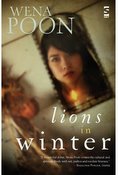
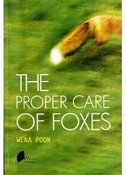
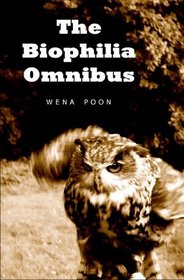


Fascinating session! Really enjoyed it. ‘Get some work done. Life is short.’ is now on a Post-It by my desk….!
Thanks for taking part, Sarah. And yes, I too can benefit from Wena’s advice to just sit down and do it!